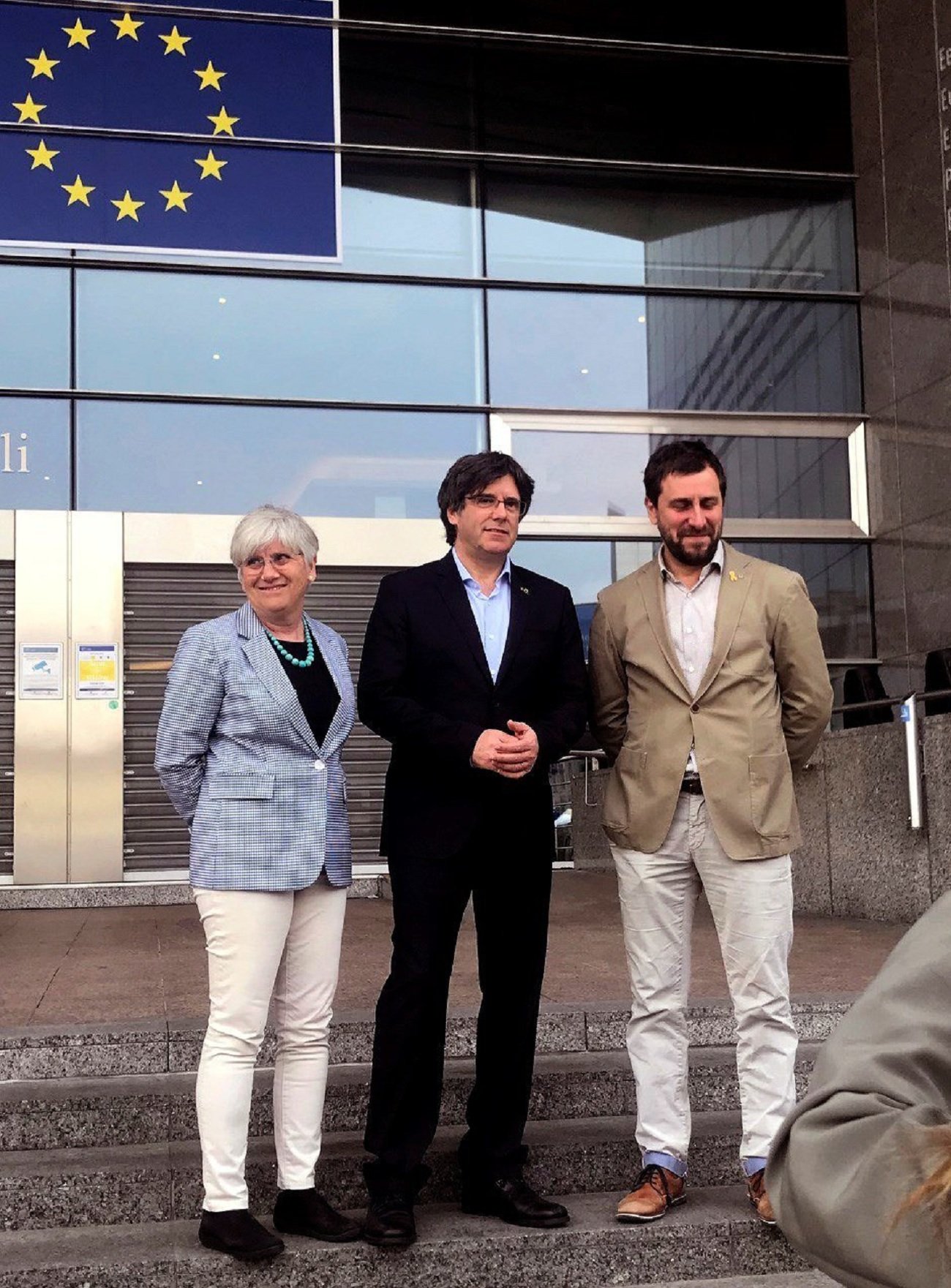Examining magistrate Pablo Llarena has drafted a 59-page European Arrest Warrant for the extradition of former Catalan ministers Toni Comín, Clara Ponsatí and Lluís Puig, as prosecutors asked him to last week.
In the ruling for this, the third European Arrest Warrant for the three, he drops the charges of rebellion, which their colleagues were acquitted of by the Supreme Court last month. Toni Comín, former health minister, is accused of sedition (different in Spanish law to colloquial English) and misuse of public funds; Clara Ponsatí, former education minister, is accused of sedition; and Llúis Puig, former culture minister, is accused of misuse of public funds and disobedience.
The warrant describes in detail the timeline of events from 19th December 2012, when president Artur Mas signed the agreement for National Transition with Oriol Junqueras to the unofficial 2014 referendum, long before any of the three were members of the government.
Elected to the Parliament in 2015, Toni Comín joined the cabinet in January the next year, when Carles Puigdemont finally managed to form a government after Mas resigned. He had previously been a deputy in the Parliament for PSC between 2004 and 2010. Ponsatí and Puig would only take over their respective ministries in summer 2017, coming from outside the Parliament as part of a reshuffle in the immediate run-up to the independence referendum.
One point of interest in today's warrants is when judge Llarena lists the petitions that Puigdemont reportedly made between the 1st October referendum and the 27th October declaration of independence. He says the president called for the withdrawal of the charges against Jordi Sànchez, Jordi Cuixart and police chief Josep Lluís Trapero, as well as a meeting with the Spanish government "to explore future agreements". According to the judge, Puigdemont decided on 19th October to move forward with the declaration of independence after his petitions were refused.
In fact, there is no mention of Comín, Ponsatí or Puig until page 27 of the warrant, when it refers to the actions of the Catalan government, listing them among those who signed the decree calling the referendum after it was approved in a plenary session in the Catalan Parliament on 6th September 2017.
Llarena quotes the Supreme Court's verdicts against their colleagues, published on 14th October this year, to justify the new warrant and the different charges.
Toni Comín
The warrant claims that health minister Comín was involved in searching for polling stations for the referendum. It says that "tapped telephone conversations" show he was involved in the organisation, both with those municipalities in favour of "holding the illegal consultation" and prepared to open their normal polling stations, as well as in those places where alternatives had to be looked for.
He says that, in order for him to be responsible for everything, Comín fired the representatives of 29 health consortiums. His department is stated to have spent €233,180.55 on the referendum; that's £200,000 or $260,000 at today's exchange rates.
Clara Ponsatí
Education minister Clara Ponsatí is accused of offering public centres to hold the referendum, "like the minister of labour and social affairs Dolors Bassa". "They were committed to holding the referendum", the judge writes, "[and] proceeded in a similar way to how the health minister had on 22nd September and took on the management and decisions over the school centres and civil centres that depended on their respective ministries". Bassa was sentenced last month to 12 years in prison for sedition and misuse of public funds.
Sources from Ponsatí's defence have confirmed she will present herself to Scottish police on Thursday morning. They will argue she shouldn't be held in custody whilst the courts decide whether or not to extradite her.
Lluís Puig Gordi
The culture ministry under Lluís Puig is accused of spending €238,003.35 on the referendum, which is equivalent to £200,000 or $260,000 at today's exchange rates.

